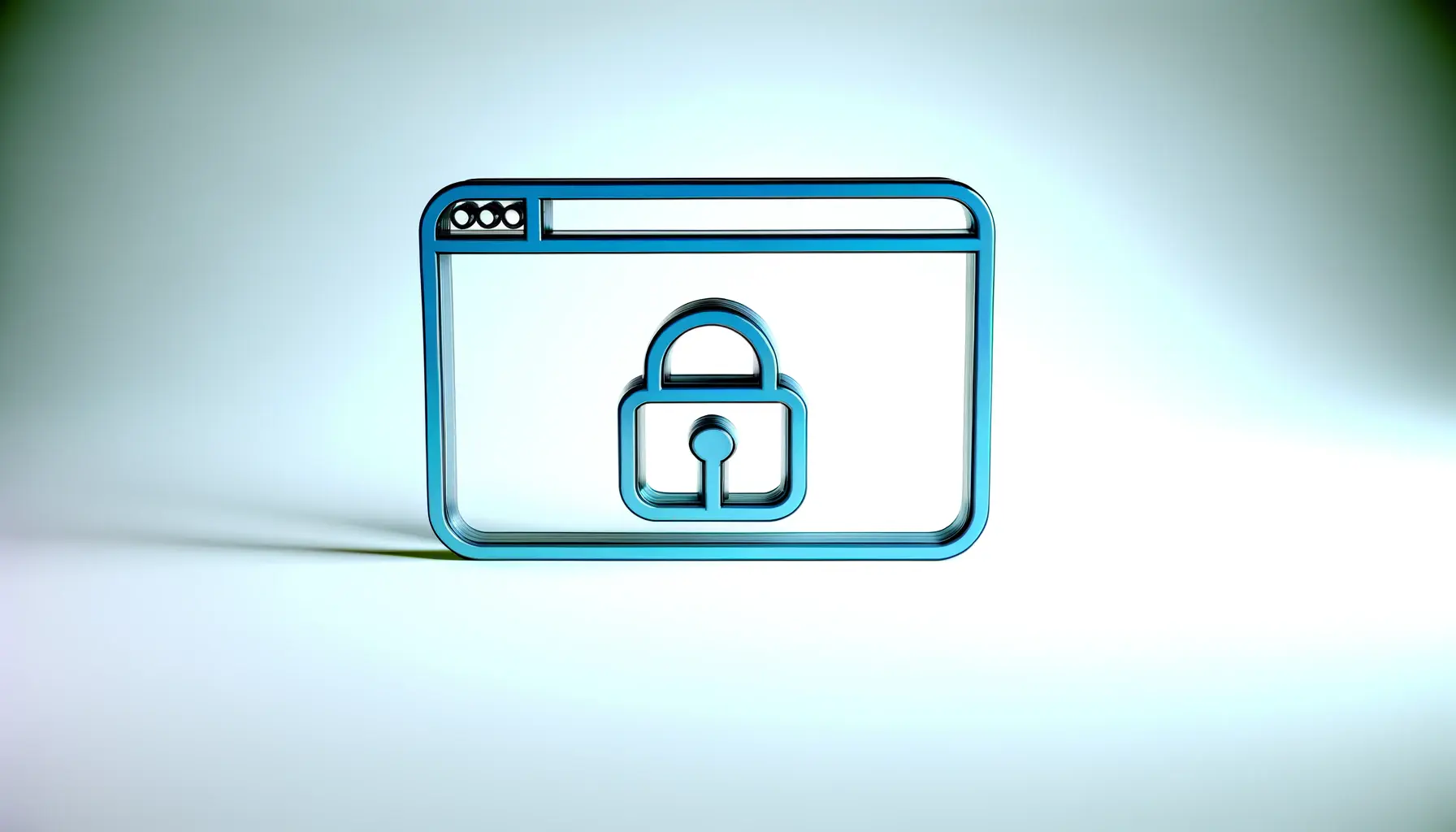In today’s digital age, the security of online transactions and communications is paramount for businesses and consumers alike.
SSL (Secure Sockets Layer) certificates play a crucial role in establishing a secure environment for internet users.
By encrypting data transferred between a user’s browser and a website’s server, SSL certificates protect sensitive information from being intercepted by malicious actors.
This article delves into the significance of SSL certificates for brand trust, highlighting their role in safeguarding online interactions and enhancing brand reputation.
At the heart of digital security, SSL certificates serve as the backbone for creating a trustworthy online presence.
They are not just technical necessities but also vital components of a brand’s identity and reliability.
In an era where cyber threats loom large, having an SSL certificate is a clear indicator that a brand values its customers’ security and privacy.
This commitment to security can significantly influence consumer perception and loyalty, making SSL certificates indispensable for businesses aiming to build and maintain trust with their audience.
- Understanding SSL Certificates and Their Functionality
- The Impact of SSL Certificates on Consumer Trust and Brand Perception
- SEO Advantages of SSL Certificates
- Choosing the Right SSL Certificate for Your Website
- Implementing SSL Certificates: A Step-by-Step Guide
- Maintaining SSL Certificates: Best Practices
- Overcoming Common SSL Certificate Challenges
- Securing Trust in the Digital Age: The Role of SSL Certificates
- SSL Certificates FAQ: Ensuring Online Security and Trust
Understanding SSL Certificates and Their Functionality
SSL certificates are digital certificates that authenticate the identity of a website and enable an encrypted connection.
This encryption ensures that any data passed between the web server and browsers remain private and integral.
SSL certificates contain the website’s public key and the website’s identity, along with related information, verified by a certificate authority (CA).
When a user connects to an SSL-secured website, their browser will form a secure connection with the server, symbolized by the “https” in the website’s URL and, often, a padlock icon in the address bar.
The process of establishing this secure connection involves a handshake between the user’s browser and the website’s server, where the SSL certificate is presented for verification.
Once the browser confirms the certificate’s validity, an encrypted connection is established using symmetric encryption.
This ensures that any data transmitted between the user and the website, such as personal information, login credentials, or payment details, is encrypted and safe from eavesdropping or tampering.
The Role of Certificate Authorities (CAs)
Certificate Authorities (CAs) are trusted entities that issue SSL certificates to website owners.
The CA’s role is to validate the identity of the entity requesting the certificate, ensuring that they are who they claim to be.
This validation process can vary in thoroughness, from simple domain validation, which confirms control over the domain, to more rigorous checks for Extended Validation (EV) certificates, which require a comprehensive verification of the requesting entity’s business credentials.
By issuing SSL certificates, CAs act as a linchpin in the trust model that underpins SSL encryption.
Users can trust that their information is secure when they see evidence of an SSL certificate issued by a reputable CA.
This trust extends to the website or brand itself, reinforcing the importance of selecting a reliable CA when obtaining an SSL certificate.
SSL certificates are more than just security measures; they are a testament to a brand’s commitment to protecting its customers’ data and privacy.
The Impact of SSL Certificates on Consumer Trust and Brand Perception
SSL certificates significantly influence consumer trust and brand perception in the digital marketplace.
In an environment where data breaches and cyber-attacks are increasingly common, consumers are becoming more cautious about where and how they share their personal information.
Brands that prioritize security by implementing SSL certificates stand out as trustworthy entities committed to protecting their customers.
This section explores how SSL certificates impact consumer trust and shape brand perception.
Consumer trust is the cornerstone of any successful online business.
It influences not only individual purchase decisions but also the long-term loyalty and advocacy that drive brand growth.
SSL certificates play a pivotal role in building and maintaining this trust by ensuring the security of online interactions.
When consumers see the padlock icon and “https” in a website’s address, they feel more confident in engaging with the site, knowing their information is secure.
Enhancing Consumer Confidence with SSL Certificates
- Secure Transactions: SSL certificates encrypt data transmitted during online transactions, protecting sensitive information such as credit card numbers and personal details from cybercriminals.
- Privacy Protection: By securing the data exchanged between a user and a website, SSL certificates safeguard users’ privacy, preventing unauthorized access to their information.
- Authentication and Verification: SSL certificates verify the authenticity of a website, assuring users that they are interacting with the legitimate site and not a fraudulent imitation.
Boosting Brand Reputation through Security
A brand’s reputation is a valuable asset that influences consumer behavior and market position.
Implementing SSL certificates is a clear signal to customers and competitors alike that a brand takes security seriously.
This commitment to security enhances a brand’s reputation, making it more attractive to both new and returning customers.
Brands that neglect this aspect of their online presence risk damaging their reputation and losing customer trust.
Furthermore, the positive impact of SSL certificates extends beyond the immediate trust between a brand and its consumers.
It also contributes to a safer overall internet ecosystem, where users feel secure engaging with online platforms.
This broader contribution to online security reinforces a brand’s position as a responsible and ethical player in the digital arena.
Incorporating SSL certificates into a brand’s digital strategy is not just a technical necessity but a strategic move that enhances consumer trust and strengthens brand reputation.
SEO Advantages of SSL Certificates
SSL certificates not only secure websites and build consumer trust but also offer significant SEO benefits.
Search engines like Google prioritize secure websites in their rankings, recognizing the importance of user safety in the digital experience.
This section delves into the SEO advantages of SSL certificates, highlighting how they contribute to a website’s visibility and ranking on search engine results pages (SERPs).
Google has explicitly stated that HTTPS is a ranking signal.
This means that websites with SSL certificates may receive a ranking boost, making them more likely to appear higher in search results than their non-secure counterparts.
The rationale behind this is clear: search engines aim to provide users with the best possible experience, which includes directing them to secure and trustworthy sites.
Key SEO Benefits of SSL Certificates
- Improved Search Engine Ranking: Websites with SSL certificates can see an improvement in their search engine rankings, as search engines favor secure sites.
- Increased Website Credibility: A secure website is seen as more credible and trustworthy, not only by users but also by search engines, which can lead to better visibility.
- Lower Bounce Rates: Users are more likely to stay on a secure website, reducing bounce rates. Search engines interpret lower bounce rates as a sign of a quality, user-friendly site, which can positively impact SEO.
Enhancing User Experience for SEO
SSL certificates contribute to a safer and more secure user experience, which is a critical factor in SEO performance.
Websites that provide a secure connection are less likely to be flagged by browsers as unsafe, ensuring that users are not deterred from visiting.
This seamless user experience encourages longer visits and more interactions, which search engines recognize as indicators of a high-quality website.
Furthermore, secure websites are more likely to earn backlinks from other reputable sites, further boosting their SEO potential.
The integration of SSL certificates into a website’s security measures is a straightforward yet effective strategy for improving its SEO performance.
By prioritizing user safety and website credibility, brands can enhance their online visibility and attract more traffic, ultimately leading to increased engagement and conversions.
Adopting SSL certificates is a win-win for both website security and SEO, offering a competitive edge in the increasingly crowded digital landscape.
Choosing the Right SSL Certificate for Your Website
Selecting the appropriate SSL certificate is crucial for maximizing the security and trustworthiness of your website.
With various types of SSL certificates available, understanding the differences and identifying which one best suits your website’s needs is essential.
This section will guide you through the different types of SSL certificates and offer insights into choosing the right one for your online presence.
SSL certificates vary in terms of validation levels and the number of domains or subdomains they cover.
The primary goal is to select a certificate that not only secures your website but also aligns with your business objectives, enhancing trust among your users and customers.
Types of SSL Certificates
- Domain Validation (DV) SSL Certificates: DV certificates are the simplest and quickest to obtain. They verify that the applicant has control over the domain. DV certificates are suitable for blogs and personal websites where transactions are not processed.
- Organization Validation (OV) SSL Certificates: OV certificates require more thorough validation than DV certificates. The CA checks the organization’s existence and authenticity, making OV certificates suitable for business websites that handle customer data.
- Extended Validation (EV) SSL Certificates: EV certificates offer the highest level of validation. The CA conducts an in-depth verification of the business, including legal, physical, and operational existence. EV certificates are ideal for e-commerce sites and any website that processes transactions, offering the highest level of trust and security to users.
Factors to Consider When Choosing an SSL Certificate
When selecting an SSL certificate, consider the following factors to ensure you choose the right type for your website:
- Level of Trust and Security Needed: Evaluate the sensitivity of the information your website handles. E-commerce sites and those collecting personal data should opt for OV or EV certificates for higher trust and security.
- Number of Domains and Subdomains: If you manage multiple domains or subdomains, consider a Wildcard SSL certificate for subdomains or a Multi-Domain SSL certificate that can secure several domains with a single certificate.
- Budget Constraints: While EV certificates offer the highest level of security and trust, they are also the most expensive. DV certificates might be a more cost-effective option for smaller websites or blogs that do not handle sensitive data.
Choosing the right SSL certificate is a strategic decision that affects your website’s security, user trust, and even SEO performance.
By carefully considering your website’s specific needs and the level of trust you wish to establish with your users, you can select an SSL certificate that best supports your online objectives.
Remember, the goal is to enhance security and user trust while aligning with your website’s specific requirements and budget.
Implementing SSL Certificates: A Step-by-Step Guide
Implementing an SSL certificate on your website is a critical step towards securing your online presence and building trust with your visitors.
The process involves several key steps, from choosing the right certificate to installing and testing it on your server.
This guide will walk you through the process of implementing an SSL certificate, ensuring your website benefits from enhanced security and trustworthiness.
Step 1: Choose the Right SSL Certificate
Based on your website’s needs, select the appropriate type of SSL certificate.
Consider factors such as the level of security required, whether you need to secure multiple domains or subdomains, and your budget.
Refer to the previous section for detailed guidance on choosing the right SSL certificate.
Step 2: Purchase and Obtain Your SSL Certificate
Once you’ve selected the right SSL certificate for your website, purchase it from a reputable Certificate Authority (CA).
After purchasing, you will need to complete a validation process, which varies depending on the type of certificate.
For DV certificates, this may involve simply verifying ownership of the domain.
For OV and EV certificates, more extensive validation is required, including documentation to prove the legitimacy of your business.
Step 3: Generate a Certificate Signing Request (CSR)
A CSR is a block of encoded text with your information that you will submit to the CA.
Generating a CSR is typically done on the server where the SSL certificate will be installed.
The CSR contains details about your website and organization, such as the domain name, company name, locality, and country.
Your web hosting provider may offer tools or assistance in generating a CSR.
Step 4: Install the SSL Certificate on Your Server
After your CA validates your CSR and issues your SSL certificate, you’ll receive a file that needs to be installed on your server.
The installation process varies depending on your hosting environment and server software.
Most hosting providers offer documentation or support to help you install your SSL certificate.
Ensure you also install any intermediate certificates provided by your CA to establish trust with browsers.
Step 5: Update Your Website to Use HTTPS
With your SSL certificate installed, the next step is to ensure your website uses HTTPS by default.
This may involve updating settings in your content management system (CMS), web server software, or through your hosting provider’s control panel.
You’ll also want to update any website links to use HTTPS URLs, ensuring secure connections throughout your site.
Step 6: Test Your SSL Certificate
After installation, thoroughly test your website to ensure the SSL certificate is working correctly.
Use online tools to verify that your site is accessible via HTTPS and that there are no security warnings or errors.
Check multiple pages, especially those that handle sensitive information like login pages and checkout processes.
Implementing an SSL certificate is a straightforward process that significantly enhances your website’s security and user trust.
By following these steps, you can ensure a smooth transition to a secure HTTPS website, protecting your visitors and improving your online reputation.
SSL implementation is a critical step for securing your website and should be approached with careful planning and attention to detail.
Maintaining SSL Certificates: Best Practices
Maintaining SSL certificates is crucial for ensuring ongoing website security and trustworthiness.
An expired or improperly managed SSL certificate can lead to security warnings that deter visitors and damage your brand’s reputation.
This section outlines best practices for maintaining SSL certificates, ensuring they continue to protect your website and support your brand’s trustworthiness.
Regularly Monitor Certificate Expiry Dates
SSL certificates have a set validity period, after which they expire and are no longer considered secure.
To avoid service interruptions and security warnings:
- Keep track of your SSL certificates’ expiry dates.
- Set up reminders to renew your certificates well before their expiration.
- Consider using certificate management tools or services that automatically notify you of upcoming renewals.
Implement Auto-Renewal Where Possible
Many Certificate Authorities offer auto-renewal options for SSL certificates.
Automating the renewal process can help prevent accidental lapses in coverage.
If auto-renewal is available:
- Opt-in for auto-renewal features to ensure continuous protection.
- Verify that your payment information is up-to-date to avoid renewal issues.
- Regularly check that auto-renewal settings are correctly configured and active.
Conduct Regular Security Audits
Regular security audits of your SSL implementation can help identify potential vulnerabilities or configuration issues.
To maintain optimal security:
- Use SSL verification tools to check your certificate’s installation and configuration.
- Ensure that your website is configured to use the strongest encryption protocols available.
- Review and update your website’s security settings to align with current best practices.
Stay Informed About Security Updates
The security landscape is constantly evolving, with new vulnerabilities and updates to best practices.
Staying informed is key to maintaining a secure website:
- Subscribe to security newsletters or alerts from your Certificate Authority and other trusted security sources.
- Apply recommended updates to encryption protocols and software as soon as they are available.
- Participate in web security forums or groups to stay aware of emerging threats and solutions.
Use Certificate Transparency Logs
Certificate Transparency (CT) logs provide a public record of SSL certificates issued for your domain.
Monitoring these logs can help detect unauthorized certificates, indicating potential security issues:
- Regularly check CT logs for unexpected or unauthorized certificate issuances.
- Set up alerts for new entries in CT logs related to your domains.
- Investigate and revoke any unauthorized certificates discovered through CT log monitoring.
Maintaining SSL certificates is an ongoing process that requires attention to detail and proactive management.
By following these best practices, you can ensure that your SSL certificates continue to provide a secure foundation for your website, supporting your brand’s credibility and trustworthiness in the digital landscape.
Neglecting SSL certificate maintenance can lead to security vulnerabilities and damage your brand’s reputation.
Overcoming Common SSL Certificate Challenges
While SSL certificates are essential for securing websites and building trust with users, their implementation and management come with a set of challenges.
These hurdles can range from technical issues during installation to complications arising from certificate renewal or revocation.
Understanding how to navigate these challenges is crucial for maintaining a secure and trustworthy online presence.
This section addresses common SSL certificate challenges and provides strategies for overcoming them effectively.
Challenge 1: Installation Errors
One of the first hurdles many encounter with SSL certificates is installation errors.
These can stem from incorrect server configuration, issues with the certificate itself, or compatibility problems.
To overcome installation errors:
- Double-check the certificate details and ensure they match your server and domain configuration.
- Consult your hosting provider or server documentation for specific installation guidance.
- Use SSL checker tools to diagnose and identify any errors in your SSL installation.
Challenge 2: Mixed Content Warnings
After installing an SSL certificate, you might encounter mixed content warnings.
These occur when a secure webpage (HTTPS) includes elements (like images or scripts) loaded over an insecure (HTTP) connection.
To resolve mixed content issues:
- Identify and update all website resources to load over HTTPS.
- Utilize content security policies (CSP) to detect and mitigate mixed content risks.
- Consider using automated tools or plugins that help secure mixed content automatically.
Challenge 3: Certificate Renewal and Expiry
SSL certificates have a finite validity period, after which they expire and must be renewed.
Failing to renew certificates in time can lead to website downtime and security warnings for visitors.
To manage certificate renewal and expiry effectively:
- Set up calendar reminders well in advance of your certificate’s expiry date.
- Explore options for automatic renewal offered by many Certificate Authorities.
- Regularly audit your SSL certificates to keep track of their validity periods and renewal dates.
Challenge 4: Performance Concerns
Some worry that implementing SSL/TLS encryption may impact website performance due to the additional processing required for data encryption and decryption.
However, the impact is often minimal and can be mitigated by:
- Implementing HTTP/2, which is designed to work efficiently with HTTPS and can improve loading times.
- Using SSL offloading to delegate encryption and decryption tasks to a dedicated device, reducing the load on your web server.
- Optimizing your website’s content and server configuration to minimize any performance overhead.
Overcoming the challenges associated with SSL certificates requires a proactive approach and a willingness to engage with the technical aspects of website security.
By addressing these common issues, you can ensure that your SSL certificates continue to provide the security and trust necessary for a successful online presence.
Effective management and troubleshooting of SSL certificate issues are key to maintaining a secure, trusted, and high-performing website.
Securing Trust in the Digital Age: The Role of SSL Certificates
In the vast expanse of the digital world, the importance of SSL certificates transcends mere data encryption.
It embodies the essence of brand trust and credibility, serving as a beacon of security in an otherwise uncertain online environment.
This article has traversed the multifaceted landscape of SSL certificates, from their foundational role in establishing secure connections to their significant impact on SEO, consumer trust, and brand perception.
As we conclude, it’s imperative to reflect on the critical insights gleaned and the actionable strategies that brands can employ to harness the full potential of SSL certificates.
Key Takeaways and Strategic Insights
SSL certificates are not just technical necessities but strategic assets that can elevate a brand’s reputation and foster a secure online ecosystem.
The journey through understanding, implementing, and maintaining SSL certificates reveals several key insights:
- SSL certificates are the cornerstone of online security, encrypting data to protect it from unauthorized access and breaches.
- The choice of SSL certificate—be it DV, OV, or EV—should align with a brand’s specific needs, balancing security requirements with budget considerations.
- Implementing SSL certificates can significantly enhance a website’s SEO ranking, making it more visible and accessible to potential customers.
- Maintaining SSL certificates requires diligence and proactive management to ensure continuous protection and compliance with evolving security standards.
- Overcoming common challenges associated with SSL certificates, such as installation errors and mixed content warnings, is crucial for maintaining a secure and trustworthy online presence.
Forging Ahead: SSL Certificates as Pillars of Digital Trust
As we forge ahead in the digital age, the role of SSL certificates in building and sustaining trust cannot be overstated.
They are vital in signaling to consumers that a brand values their privacy and is committed to protecting their information.
This commitment, in turn, lays the foundation for lasting relationships built on trust and security.
For brands looking to thrive in the digital marketplace, investing in SSL certificates is not just a security measure but a declaration of their dedication to customer safety and trust.
In conclusion, SSL certificates are indispensable tools in the arsenal of digital security measures.
They encapsulate the commitment of brands to safeguard user data, enhance user experience, and elevate their standing in the digital realm.
By prioritizing SSL certificates, brands can navigate the complexities of the digital landscape with confidence, ensuring that they remain trusted, secure, and successful in their online endeavors.
Quality web design is key for a great website! Check out our service page to partner with an expert web design agency.
SSL Certificates FAQ: Ensuring Online Security and Trust
Understanding the nuances of SSL certificates is crucial for anyone looking to secure their online presence. Here are answers to some frequently asked questions that shed light on the importance of SSL certificates.
An SSL Certificate is a digital certificate that encrypts data transferred between a user’s browser and a website, ensuring secure online transactions.
SSL Certificates protect sensitive information, establish trust with users, and improve a website’s SEO ranking by signaling its security to search engines.
While all websites benefit from SSL certificates, they are essential for any site handling sensitive data, such as e-commerce and login pages.
SSL Certificates positively impact SEO by enhancing website security, which is a ranking factor for search engines like Google.
SSL Certificates encrypt data transmission, making it harder for hackers to intercept and steal information, thus significantly enhancing security.
There are three main types: Domain Validation (DV), Organization Validation (OV), and Extended Validation (EV), each offering different levels of security.
Look for “https://” in the URL and a padlock icon in the browser’s address bar, indicating that the site is secured with an SSL Certificate.
Expired SSL Certificates lead to security warnings in browsers, deterring users from accessing the site and potentially harming the site’s reputation.











